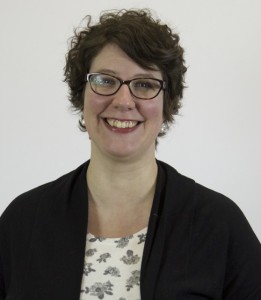The Mental Wellness Counseling “Meet the Counselors” series offers a deeper look into each counselor’s background, experiences, motivations, values, and philosophies. In this series, I put counselors on the couch to learn why and how they do what they do.
Q: How did you first get interested/involved in your particular field?
 A: I became interested social work because I wanted to help kids. I often saw kids struggling in school; they needed somebody to be their advocate. As a undergraduate, I started to focus on early childhood education because I realized that early childhood was when significant changes in the family dynamic happened in order for the child to grow to be a happier, healthier adult. I also wanted to do something more clinical, so my social work has grown into my mental health work. I now work at Northern Lakes Community Mental Health as a home-based therapist. At Mental Wellness Counseling, my focus is children eight years and younger.
A: I became interested social work because I wanted to help kids. I often saw kids struggling in school; they needed somebody to be their advocate. As a undergraduate, I started to focus on early childhood education because I realized that early childhood was when significant changes in the family dynamic happened in order for the child to grow to be a happier, healthier adult. I also wanted to do something more clinical, so my social work has grown into my mental health work. I now work at Northern Lakes Community Mental Health as a home-based therapist. At Mental Wellness Counseling, my focus is children eight years and younger.
Q: What types of issues do you address and how?
A: Often times the people who seek my services have children who are pretty disorganized. Not every parent is going to be perfect, but when a parent makes a mistake, it’s important that they are able to make a repair. Infant mental health deals with bonding and attachment—how to increase markers of secure attachment with the primary care giver. For parents like foster parents or adoptive parents, making that connection is based upon critical education about the child’s needs. For children who have had some type of physical/sexual abuse or trauma in their past, I use trauma-focused cognitive behavioral therapy.
Q: What are the biggest challenges of your work?
A: Home-based therapy is very different. It’s a wonderful practice to be in the home—to see where moms and dads come from and to see children acting in their environment— but there’s a lot of unknown variables before I go into a session. For example, at one home visit, a stray dog came up, so we took care of it and found its owner. Home visits present some challenges that I may not see in an office setting.
Q: What is the most valuable advice you can offer a beginning social worker?
A: In social work, you see people who are impoverished more than affluent families. You work with people who are at a disadvantage, so it’s important to understand the culture of poverty. I think we’re often quick to judge how people in poverty spend their time and money.
Q: What is the most rewarding thing about what you do?
A: I find it really rewarding when parents know that somebody else likes their child. Typically when parents seek out my service, it’s because their child is very outrageous in their behavior. Yet I have never met a child who I did not adore. Also, it’s truly remarkable to see a parent and child fall in love with each other.
Q: Overall, what is the most valuable thing you have learned from your work?
A: It helps you reframe what’s happening to give you a new perspective. For instance, when you see the way an adult is behaving, sometimes it can be really discouraging, but then when you stop to think about their experiences, you realize that they’re doing the best they possibly can. It softens you up to have better parameters of compassion.
Q: Future plans?
A: Right now I’m looking to get my full license and become nationally certified in trauma-focused cognitive behavioral therapy. I would also like to expand my play therapy and theraplay techniques. There are a lot of things I’m still interested in learning and doing.

Click here to learn more about Jen or to schedule an appointment.

